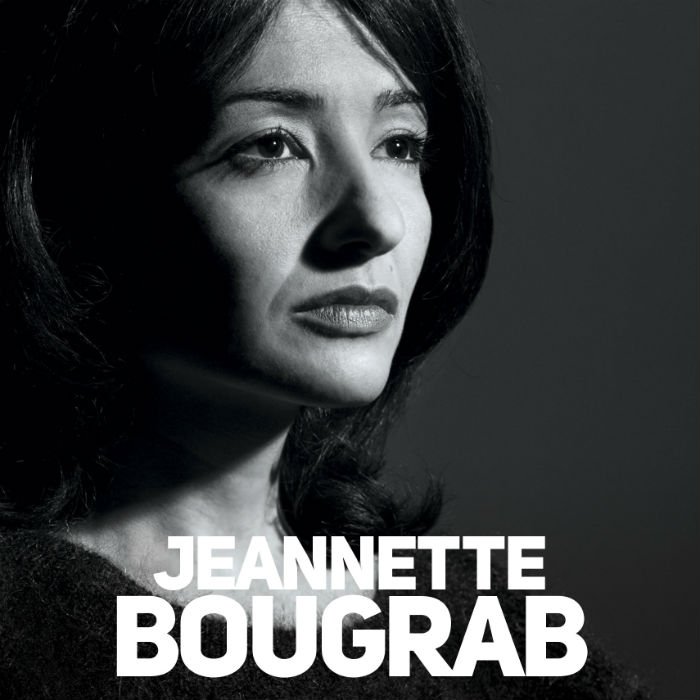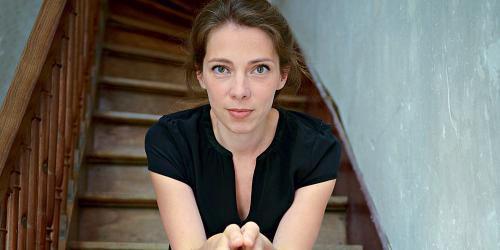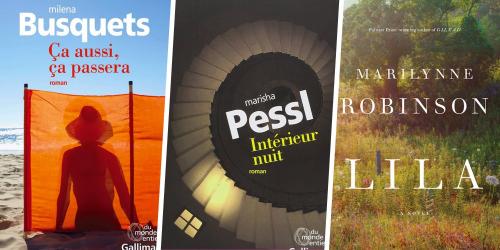Former Secretary of State for Youth under Sarkozy, today at the Council of State, this girl of harkis who defrayed the chronicle for revealing his relationship with Charb, the editor of "Charlie Hebdo" assassinated publishes "Maudites "*. This intimate narrative pays tribute to the women she admires: her mother, married at the age of 13, Nada, a young Yemeni who was also the victim of an early marriage, Malala Yousafzai, Nobel Peace Prize laureate, violence against women. Jeannette Bougrab is preparing to go to Finland with her daughter May, she will be a cultural advisor at the French Embassy. A new life far from vain polemics.
MC: Your book "Maudites" speaks about your relationship, sometimes complicated, with your mother, Zohra, with the fact that she was forcibly married at the age of 13 ...
Jeannette Bougrab: My mother is dying of cancer at the age of 67 and she always regrets that she did not go to school. When one is a girl, and the elder of a sibling of nine children, one is a domestic slave, forced to do chores permanently. When she went to school, she was caught up by her mother, who beat her. It is the rape organized by his family at the age of 13, which we dare call a marriage, which will structure my life, because my mother will do everything so that her daughters escape this. She managed to break the "spell" of being born a woman for her daughters. At the same time, even as a feminist, I feel like the "ugly duckling" of the family.
An "ugly little duck"? But you were secretary of state in 2010, and today, master of petitions at the Council of State, your mother should be proud of you ...
Yes, but in this context, even though she told me she was proud of me - and it was important for her to tell me - I know that as a mother worried about her daughter she would like to know that somebody watch over me. I wish I could reassure her. In the end, I realized that this someone is my daughter, May.
You recall in your book that the barbaric practices of which many women are victims in the world are also perpetuated by women ...
You have had the opportunity to say it in MC in an article on the circumcisers. It is indeed the women who take little girls to get excised. This is why their education is essential: they perpetuate this model which has been imposed on them, sometimes by revenge, by saying to themselves: "I have lived it, why would my daughter escape?" Education is essential so that they can educate their sons with respect for women, and their daughters in the non-acceptance of violence and emancipation.
You went to Yemen to meet little girls married at 8 years old. These early marriages have always existed, except that today, you say, they are justified by religion ...
At the time of my mother, more than sixty years ago, in Algeria, it was not religion: it was patriarchal and aggravated by poverty because, when one gives his daughter in marriage, one recovers one little money and we have a mouth less to feed. Today, this is another justification: the behavior of the prophet in the seventh century, who married Aisha then 6 years old. It is no use talking about the International Convention on the Rights of the Child, for many, the Shari'a and the sayings of the Prophet are above all. In Yemen, thirty years ago, women were in miniskirts.
Normally, social progress should have made these gamins escape this ... They are called "the brides of death", because many died after their wedding night following a haemorrhage, intra-uterine tears. Few people are currently worried about the fate of these little girls. It seems like Yemen is very far away, but I just want to remind you that the fatwa that killed Charb was pronounced in Yemen and that the Kouachi brothers went there. If we do not worry about what happens there, it will come to us. It should not be forgotten that Saudi Arabia finances its schools and madrasas in Pakistan.
Do you regret talking about your relationship with Charb on television, an interview that provoked a violent controversy?
With Charb, we met on battles. The probability that I fall in love with a guy of "Charlie Hebdo" was still pretty slim. I'm a girl from harkis. It should not be forgotten that "Charlie" was condemned for insulting the harkis because of an article by Siné. That should have made me take my legs off my neck. When I am asked to speak about it on television, I think of all the moments when I escaped death: in Pakistan, when I went to speak to the Taliban leader, Sami Ul Haq, without a sail; in Guatemala, when I went to meet the Mara (ultraviolent gang, editor's note) without protection ... And here I learn that my guy was killed and that we must continue the fight. I, of course, take up arms. I had no idea of the reaction that would follow, and I do not want to understand it. It bruised me, prevented me from mourning, while allowing me to get up and write this book-witness for my mother who is leaving.
I loved this man, I love him and I am proud to have loved him. What others think today is totally equal to me. It is the relationship between a woman and a man. We were two savages, we went out from time to time together in public but we always chose, and then there was this fatwa ... We do not rebuild in anger. I'm gonna live a new mourning. I will not forgive anything but, on the other hand, I refuse to live with hatred, because I have my daughter and that many people support me. I'm leaving with fights in Finland. I hope to be able to organize things for women there, I will continue to write, I would also like to make a documentary about women and Iran, but for now, I am denied the visa. The fight goes on.
(*) ed. Albin Michel. See also: the excellent documentary "Forbidden school" (Canal ) by Jeannette Bougrab.
Interview by Catherine Durand with Victoria Desmond-Salinas


